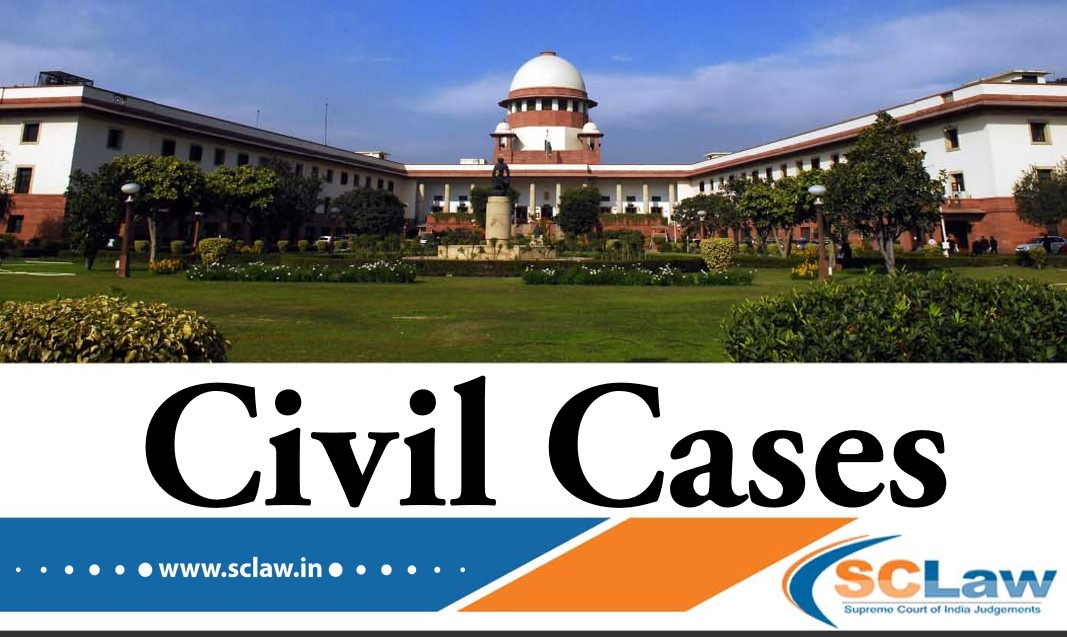V IMP : LEVY OF SERVICE TAX BY INCORPORATED CLUBS – HELD – We are also of the view that from 2005 onwards, the Finance Act of 1994 does not purport to levy service tax on members’ clubs in the incorporated form. The expression “body of persons” may subsume within it persons who come together for a common purpose, but cannot possibly include a company or a registered cooperative society. Thus, Explanation 3(a) to Section 65B(44) does not apply to members’ clubs which are incorporated. Consequently, show-cause notices, demand notices and other action taken to levy and collect service tax from incorporated members’ clubs are declared to be void and of no effect in law.
1.The definition of “club or association” contained in Section 65 (25a) makes it plain that any person or body of persons providing services for a subscription or any other amount…
Society Matters – we are of the view that the only way to bring to an end all the litigations between the parties before various fora is to set aside the impugned order and the elections held pursuant thereto and to appoint an Advocate Commissioner to convene the General Body as well as the Executive Committee for the election of office bearers.
SUPREME COURT OF INDIA DIVISION BENCH VIRUDHUNAGAR HINDU NADARGAL DHARMA PARIBALANA SABAI AND OTHERS — Appellant Vs. TUTICORIN EDUCATIONAL SOCIETY AND OTHERS — Respondent ( Before : Rohinton Fali Nariman…
Entitlement Rules for Casualty Pensionary Awards, 1982 – Rule 14 – Grant of disability pension – Provision of grant of disability pension is a beneficial provision but, mental disorder at the time of recruitment cannot normally be detected when a person behaves normally – Since there is a possibility of non-detection of mental disorder, therefore, it cannot be said that Schizophrenia is presumed to be attributed to or aggravated by military service.
SUPREME COURT OF INDIA DIVISION BENCH NO. 14666828M EX CFN NARSINGH YADAV — Appellant Vs. UNION OF INDIA AND OTHERS — Respondent ( Before : L. Nageswara Rao and Hemant…
Madhya Pradesh Nagar Tatha Gram Nivesh Adhiniyam, 1973 – Sections 58 and 86 – Allotment of land – considered view that directing the Indore Development Authority to revisit the matter afresh at this stage when the lease deed of the plot has been executed and the appellant has raised construction – No purpose.
We are of the considered view that directing the Indore Development Authority to revisit the matter afresh at this stage when the lease deed of the plot has been executed…
Penal Code, 1860 (IPC) – Sections 120B, 467, 467 read with 471, 420, 477A – Prevention of Corruption Act, 1988 – Section 13(2) read with Section 13(1)(d) –
We are not able to trace out any evidence in respect of dishonesty/misuse in obtaining loan without furnishing any security. In our view the prosecution has failed to prove beyond…
Civil Procedure Code, 1908 (CPC) – Order 7 Rule 10 and 10A – Arbitration and Conciliation Act, 1996 – Section 34 – Setting aside arbitral award – Period of limitation –
In such circumstance, in the fact situation wherein the issue of delay had arisen only in the context of the delay of 8 days in re-presentation as permitted by the…
Specific Relief Act, 1963 – Section 16(1)(c) – Suit for specific performance of agreement – Readiness and willingness – The application for extension of time made after expiry of the time prescribed is sufficient evidence for the incapacity of the plaintiff to perform his obligations demonstrating readiness and willingness
SUPREME COURT OF INDIA DIVISION BENCH RAVI SETIA — Appellant Vs. MADAN LAL AND OTHERS — Respondent ( Before : Navin Sinha and Indira Banerjee, JJ. ) Civil Appeal No(s).…
Conviction under Section 302/149 of the Indian Penal Code (IPC) – The appellants were undoubtedly the members of an unlawful assembly some of whom were also armed with spears and assaulted the deceased. All the accused surrounded the deceased obviously to prevent his escape.The fact that the co-accused may have assaulted on the head again cannot be considered very relevant to eschew the absence of common object.
SUPREME COURT OF INDIA DIVISION BENCH FAINUL KHAN — Appellant Vs. STATE OF JHARKHAND — Respondent ( Before : Navin Sinha and B.R. Gavai, JJ. ) Criminal Appeal No(s). 937…
Civil Procedure Code, 1908 (CPC) – Section 9A (inserted by the Maharashtra Amendment Act, 1977) – word “jurisdiction” – include the issue of limitation as the expression has been used in the broader sense and is not restricted to conventional definition under pecuniary or territorial jurisdiction
SUPREME COURT OF INDIA FULL BENCH NUSLI NEVILLE WADIA — Appellant Vs. IVORY PROPERTIES AND OTHERS — Respondent ( Before : Arun Mishra, M.R. Shah and B.R. Gavai, JJ. )…
Date Of Coming Into Force Of IBC Wholly Irrelevant To The Triggering Of Any Limitation For Applications: SC
Date Of Coming Into Force Of IBC Wholly Irrelevant To The Triggering Of Any Limitation For Applications: SC We had also made it clear beyond any doubt that for applications…

















